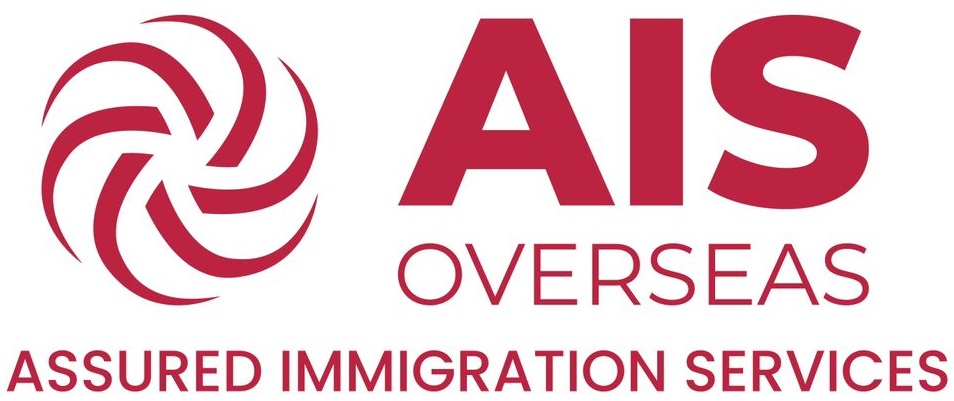
Migrate to Hong Kong
Sign up for a free expert consultation
Why Migrate to Hong Kong
Begin a new life in Hong Kong meaning “fragrant harbour” in Chinese, Hong Kong offers countless opportunities.
It's an exciting and gratifying prospect to live in Hong Kong. If you choose to live and work in Hong Kong, you should anticipate having a successful career. Meanwhile, there's enough of culture to explore. Hong Kong has an illustrious and lengthy history of embracing international labourers and residents.
Hong Kong is seen by many international corporations as a crucial entry point into the global market because it provides fulfilling job prospects. Hong Kong offers a wealth of work prospects in technology, human resources, advertising, and finance. Hong Kong is a bustling city that serves as a gateway to China's mainland.
About Hong Kong
- Hong Kong, a special administrative territory of China, is situated on the South China Sea delta, east of the Pearl River.
- The People's Republic of China's Hong Kong Special Administrative Region is the official name of Hong Kong.
- The New Territories (which comprise the mainland and 230 islands leased from China) are combined with Hong Kong Island, Ngong Shuen Island, and the southern portion of the Kowloon Peninsula to form Hong Kong.
- On July 1, 1997, the entire region was restored to China under the joint Chinese-British declaration. Although Hong Kong was granted significant autonomy under the Basic Law, it remained a Special Administrative Region of the People's Republic of China until 1997.
- Hong Kong has a population of about 7.5 million people. The bulk of people are Chinese in ethnicity. The national groups of the Philippines, Indonesia, and India are among the other notable ones.
- Hong Kong was first built because of its superior natural harbour, and it has since grown. Hong Kong has become a major hub for trade and finance nowadays.
- Hong Kong's economy, which is the eighth-largest commercial economy in the world, is distinguished by little government interference, low taxation, and free commerce.
Prominent cities in Hong Kong–
- Hong Kong (city)
- Kowloon
- Tai Po
- Wong Tai Sin
- Tsuen Wan
- Sha Tin
- Wan Chai
- Sai Kung
- Tung Chung
- Tuen Mun
Why settle in Hong Kong
Among the richest nations on earth, Hong Kong offers a contemporary and prosperous work environment. Cantonese is the language spoken locally in Hong Kong. But the de facto second language is English. Unquestionably, Hong Kong promises a fantastically affluent lifestyle and an exciting social scene. When visiting Hong Kong as a dependent of someone with a Hong Kong visa, you are permitted to work there. It's also usually simple to start your own firm, whether it's a limited corporation or a sole proprietorship.
Professionals and talent from all over the world, including specialists, entrepreneurs, and skilled laborers, are invited to work, invest, and reside in Hong Kong. There are numerous talent admittance programs accessible as part of a government initiative.
Admission schemes for talent, professionals, and entrepreneurs include, among others–
- General Employment Policy (GEP) (for non-Mainland residents) – Professionals
- General Employment Policy (GEP) (for non-Mainland residents) – Entrepreneurs
- Quality Migrant Admission Scheme (QMAS)
- Technology Talent Admission Scheme (TechTAS)
- Immigration Arrangements for Non-local Graduates (IANG)
Hong Kong's Quality Migrant Admission Scheme (QMAS) aims to increase Hong Kong's worldwide competitiveness by attracting brilliant or highly qualified persons to live in the city, based on an annual quota.
Under the QMAS, entry into the nation for settlement purposes does not require a work offer from Hong Kong. To receive points under either of the two point-based tests—the General Points Test or the Achievement-based Points Test—applicants must meet a series of prerequisites.
| Factors | Points | Claimed Points |
| 1 | Age (Maximum 30 points) | |
| 18-39 | 30 | |
| 40-44 | 20 | |
| 45-50 | 15 | |
| 51 or above | 0 | |
| 2 | Academic/Professional Qualifications (Maximum 70 points) | |
| Doctoral Degree / Two or more master’s degrees | 40 | |
| Master’s Degree / Two or more bachelor’s degrees | 20 | |
| A bachelor's degree or professional qualification that attests to the holder's extremely high degree of technical ability or talent and is granted by a professional body that is highly regarded both nationally and globally | 10 | |
| Additional points if a degree at bachelor level or higher is awarded by a renowned institution recognized internationally (Note1) | 30 | |
| 3 | Work Experience (Maximum 75 points) | |
| ten years or more of graduate- or specialist-level professional experience, with at least five of those years spent in a senior position | 40 | |
| at least five years of work experience as a graduate or specialist, with at least two of those years spent in a senior capacity. | 30 | |
| At least five years of work experience as a graduate or specialist | 15 | |
| at least two years of professional experience as a graduate or specialist | 5 | |
| Additional points for not less than 2 years’ graduate or specialist level work experience with international exposure (Note2) | 15 | |
| Additional credit is awarded for at least three years of graduate-level or specialized job experience in multinational corporations (MNCs) or other respectable businesses, including listed companies or those included in Forbes, Fortune Global 500, and Hurun China 500 lists. | 20 | |
| 4 | Talent List (Maximum 30 points) (Note3) | |
| Extra points if you fulfill the requirements for that particular career listed on the Talent List. | 30 | |
| 5 | Language Proficiency (Maximum 20 points) | |
| having fluency in written and spoken English and Putonghua, often known as Cantonese | 20 | |
| having at least one foreign language proficiency in addition to written and spoken English or Chinese (Putonghua or Cantonese) | 15 | |
| having a strong command of written and spoken English or Putonghua (Cantonese) | 10 | |
| 6 | Family Background (Maximum 20 points) | |
| 6.1 | At least one immediate family member (married spouse, parents, siblings, children) is a Hong Kong permanent resident residing in Hong Kong (Note4) | 5 |
| 6.2 | Accompanying married spouse is educated to the equivalent level of a degree or above (Note4) | 5 |
| 6.3 | 5 points for each accompanying unmarried dependent child under the age of 18, maximum 10 points | 5/10 |
| Maximum 245 points | ||
Successful applicants may go to Hong Kong with their spouse or partner and any unmarried children under the age of 18. The dependent's duration in Hong Kong will be the same as that of the primary applicant; throughout their stay, they are free to pursue further education or work.
Permanent residence in Hong Kong
Entrants and their dependents are allowed to apply for Hong Kong permanent resident status after seven years of continuous residence in Hong Kong.
How can AIS Overseas help you?
With the help of AIS overseas, you may choose the ideal abroad alternative for your needs and preferences while receiving objective immigration advice based on your educational background, qualifications, and other requirements.
Frequently Asked Questions
The General Points Test will require a score of at least 80 points. There are 225 total points that can be earned.
-
Factors assessed for the general points test of the QMAS
- Age (30 maximum points)
- Professional or academic background (maximum points: 70)
- Work experience (up to 55 points)
- List of talents (up to 30 points). If you meet the requirements for the applicable profession on the Talent List, you will receive extra points.
- Language ability (up to 20 points)
- Background in the family (max points: 20)
The Technology Talent Admission Scheme of Hong Kong is conveyed here by the term "TechTAS."
For qualified enterprises in Hong Kong, TechTAS provides a fast-track route to hire foreign tech personnel for research and development (R&D) projects in the Hong Kong Special Administrative Region (HKSAR).
Before obtaining a quota, qualified businesses must apply to the Innovation and Technology Commission (ITC).
The normal processing period under TechTAS for a Hong Kong work visa or entrance permit is two weeks.
The whole application must be received on the date it is calculated; no additional paperwork is needed, and no necessary information is missing.


